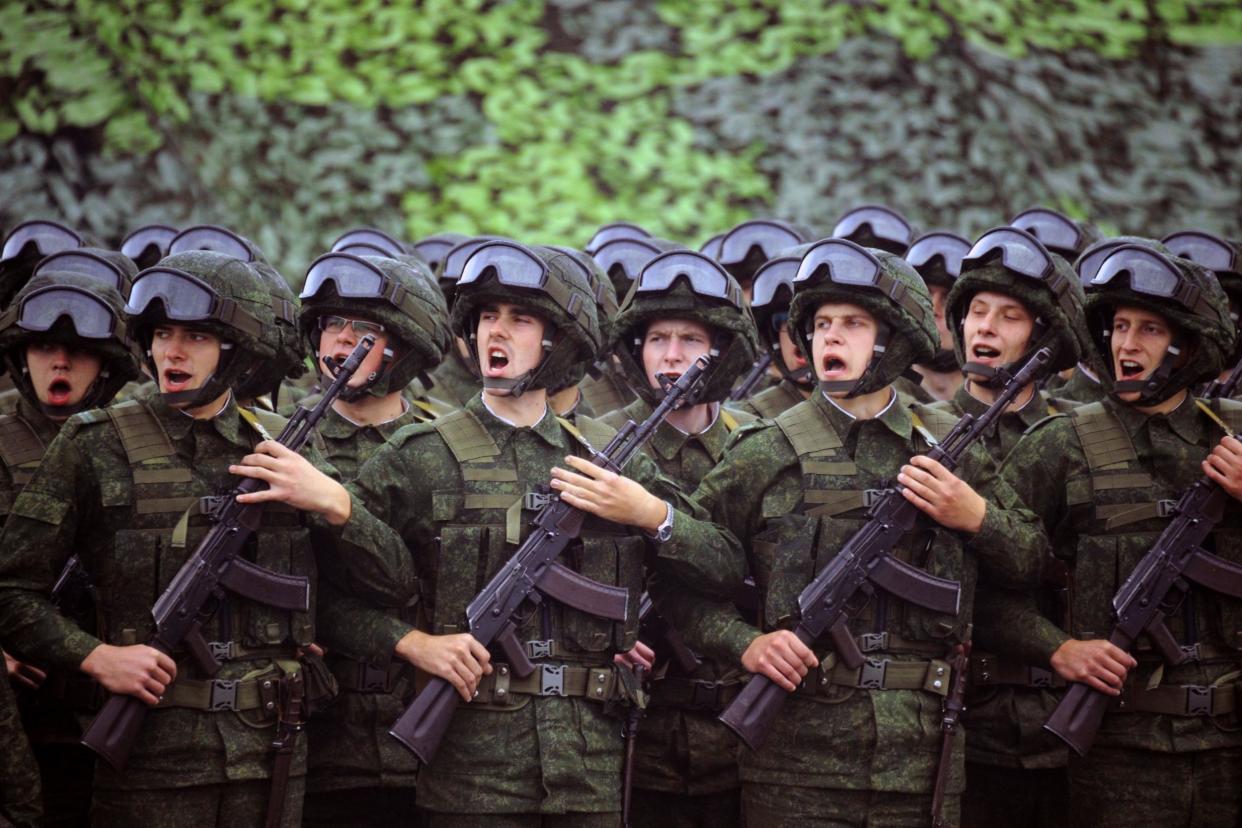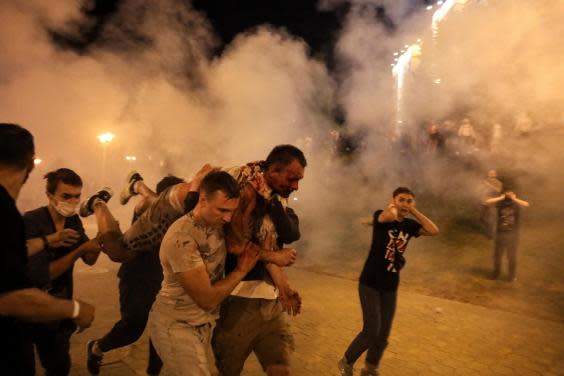UK ‘strengthening’ Belarus dictatorship’s army with military training

The UK has been accused of “strengthening and legitimising” Belarus’s dictatorship after it emerged that British forces have been providing training to the country’s military.
Alexander Lukashenko’s government, long regarded as Europe’s last classic dictatorship, has faced down pro-democracy protests in recent weeks triggered by the result of the country’s latest rigged election.
Thousands of protesters have been detained by authorities, hundreds thought to have been tortured, and at least four have died. On Sunday, amid ongoing protests in central Minsk, the Defence Ministry announced the army would be deployed to “protect national monuments”.
Campaigners said the UK has been helping the “aggressive wing of a deeply repressive and authoritarian sate” by providing training to troops and commanders in the country’s armed forces.
As recently as March, the Ministry of Defence openly announced that British Royal Marines had “shared essential experience and expertise with Belarusian forces” in joint exercises.
UK ministers also admitted that the UK had provided advanced training courses to officers in the country’s military.
Belarusian troops are also known to have attended exercises in the UK for several years running, winning medals in military trials.
Images of British troops training alongside Belarusian forces have also been used as publicity in state media, which campaigners say gives extra legitimacy to the regime back at home.
“The Belarus armed forces are a very aggressive wing of a deeply repressive and authoritarian state. The brutal scenes that we have seen over recent weeks should concern us all,” said Andrew Smith of Campaign Against Arms Trade.
“The UK should not be doing anything that strengthens the Belarus authorities, and that must include an end to all military training.”
He added: “The images of UK forces in Belarus were shown all over state media. The message this sent to the regime was one of support. The message it sent to pro-democracy campaigners was that their rights don’t matter. Now more than ever, it is vitally important that the UK and other governments stop their hypocrisy and act in support and solidarity to those that are calling for democratic reform.
“When the UK trains with human rights-abusing regimes, it strengthens them and gives them a greater legitimacy. It can only make them more efficient in their repression. We have seen the deadly impact of UK military cooperation in Yemen, where UK-trained Saudi pilots have used UK-made arms to inflict a humanitarian crisis.”
Belarus’s contested elections, widely regarded as unfree and unfair, saw opposition candidate Sviatlana Tsikhanouskaya flee to Lithuania after Mr Lukashenko claimed to have won 80 per cent of the vote.

The UK has said it does not accept the result of the elections, with the foreign secretary Dominic Raab this week describing it as “fraudulent” and calling for an investigation by the independent OSCE.
He said the world had “watched with horror at the violence used by the Belarusian authorities to suppress the peaceful protests”.
But the latest repression come as little surprise in the country, which think-tank Freedom House has consistently rated as “not free” on account of it being “an authoritarian state in which elections are openly orchestrated and civil liberties are tightly restricted”.
A spokesperson for the Ministry of Defence defended the training on the basis that the country’s military has not yet been involved in the suppression of protesters.
“The UK has no relationship with the law enforcement agencies in Belarus whose troops suppressed the protesters,” the spokesperson said.
“Our engagement with the Belarusian armed forces is centred on areas of mutual learning, such as UN peacekeeping operations, language tuition and arms control. This will be kept under review as the situation develops.”
Read more
After the biggest protests in Belarus’s history, what happens now?
Lukashenko orders police in Belarus to end protests with force
UK refuses to recognise Belarus election result amid mass protests

 Yahoo News
Yahoo News 
